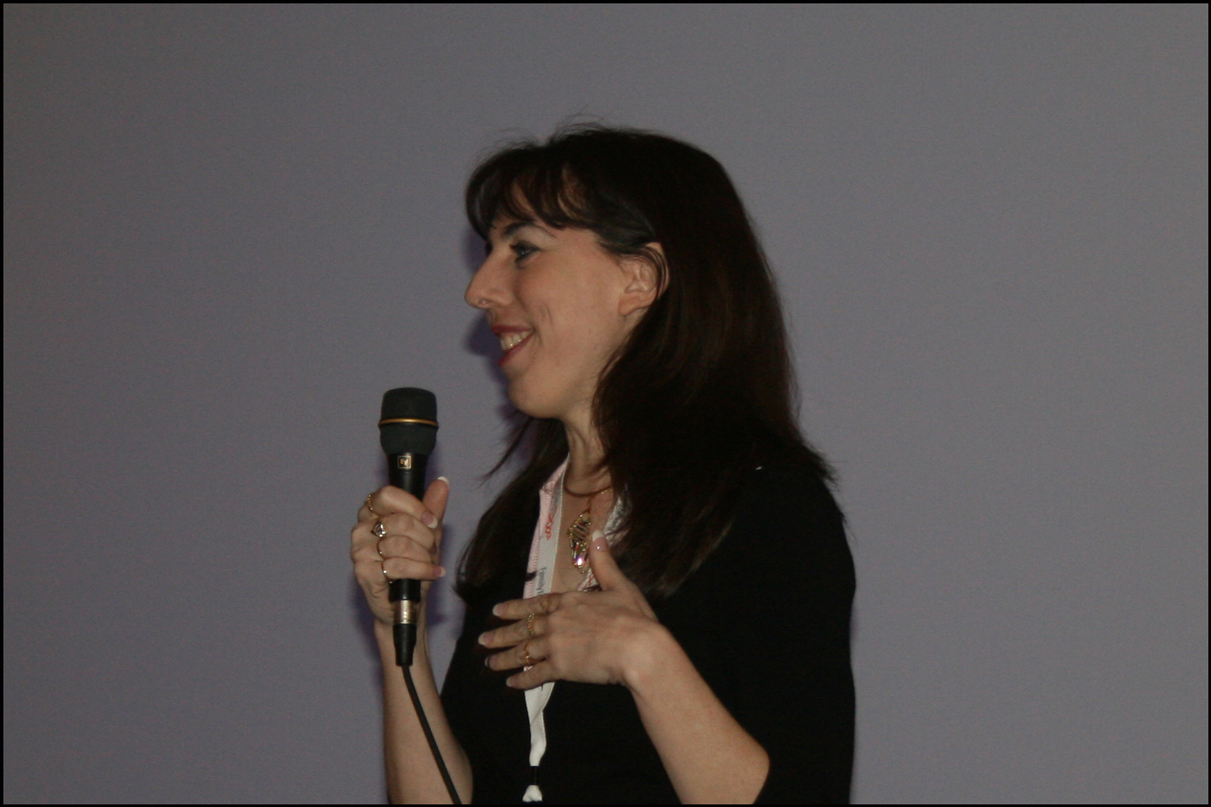Two talks at the Family Tree DNA 5th International Conference on Genetic Genealogy for Project Administrators dealt with the related issues of privacy, ethics, and Direct-to-Consumer (DTC) Legislation in DNA testing.
The first talk was presented by Ricki Lewis, PhD (genetics), a textbook author, science writer, genetic counselor, and a Fellow at the Alden March Bioethics Institute of Albany Medical Center.
Dr. Lewis discussed privacy and ethics in connection with direct-to-consumer DNA tests provided by such companies as 23andMe, Navigenics, and deCODE Genetics, in particular those DNA tests with a medical or physiological angle. These companies offer to test consumers’ DNA for genetic risks for such conditions as multiple sclerosis, Alzheimer’s disease, Lupus, obesity, arthritis, heart attacks, diabetes, and cancer.
Dr. Lewis mentioned an article entitled “Born to Run? Little Ones Get Test for Sports Gene” which describes a genetic test to determine if children have a variant of a gene associated with athletic ability, and proposed an alternative test: Line up the kids, have them run a race, and see who gets to the finish line most quickly. She also mentioned a test for a gene for bitter taste perception and suggested that one need only pick up a piece of broccoli to answer that question.
The problem Dr. Lewis sees in these direct-to-consumer tests is that they present the possibility of violating an individual’s privacy and may cause harm. In particular, she felt that a person who tests positive for an inherited disease may feel the duty to warn blood relatives who may not yet know they carry a gene for a particular condition and may not want to know they carry that gene.
The Genetic Information Nondiscrimination Act (GINA) bars health insurers from denying coverage or charging higher premiums solely because an individual has a genetic predisposition for a particular disease, and prohibits employers from using someone’s genetic information when making certain employment decisions.
Nonetheless, Dr. Lewis stated that genetic testing must respect a patient’s privacy, do no harm, and provide enough information so that consumers understand the limitations of the tests.
Dr. Lewis mentioned that genetic health tests often involve bad news and a need for privacy, while genetic genealogy tests involve good news and sharing. Unfortunately, there appears to be an impending intersection of the two types of tests, and legislation to regulate genetic health tests may affect genetic genealogy tests as well and Dr. Lewis posed the question “How can testing for health and ancestry be kept separate?.”

Katherine Hope Borges (Houston, Harris County, Texas). Photographed by Stephen J. Danko on 15 March 2009.
In the second lecture, Katherine Hope Borges, director of the International Society of Genetic Genealogy (ISOGG) discussed recent developments to legislate restrictions and controls on direct-to-consumer DNA tests, including those for genealogical purposes.
A recent CRS Report for Congress on Genetic Ancestry Testing describes what the author feels is an inadequate amount of information provided to the consumer about the limitations of these tests and suggesting that congress may need to address this issue.
Likewise, recent statements by professional groups such as the American College of Medical Genetics (ACMG) and the American Society of Human Genetics (ASHG) on health-related direct-to-consumer tests may also influence legislation that may, ultimately, affect genetic genealogy testing as well as medical DNA tests.
The American Society of Human Genetics released an Ancestry Testing Statement on 13 Nov 2008 recommending that mechanisms for greater accountability of the direct-to-consumer ancestry testing industry should be explored.
Along with all these discussions on how to regulate direct-to-consumer DNA tests are actions by the states of New York, California, and Maryland restricting the availability of these tests from some companies to residents of those states. In light of these actions, genetic genealogists may be faced with the need to better inform legislators of the utility and benefits of direct-to-consumer DNA tests.
Copyright © 2009-2019 by Stephen J. Danko



